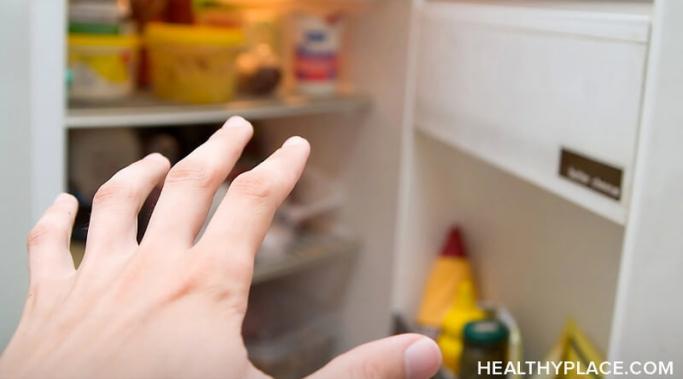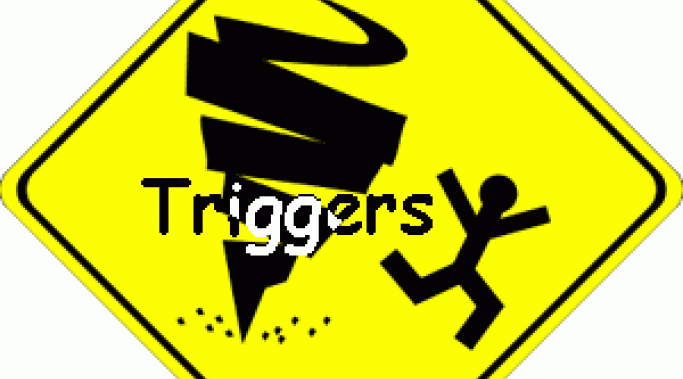Anxiety triggers are pesky things and they can be difficult to avoid. As a person living with an anxiety disorder, I don’t intentionally put myself in a position to trigger an anxiety or panic attack. Some triggers are easy to avoid. If snakes trigger anxiety, a pet boa constrictor isn’t for you. But what about happy memories? Is it possible for a happy memory to trigger anxiety?
Anxiety Causes
Sometimes, we experience anxiety because of an anxiety trigger. People can be diagnosed with different types of anxiety disorders, each with specific symptoms and causes. Additionally, people can experience situational anxiety where something in particular causes anxiety symptoms to flare. A student might experience test anxiety severe enough to negatively impact performance or a parent's anxiety might become heightened and nearly debilitating when he/she thinks about the various harm that could come to the child. The anxiety that is triggered by something can be painful, limiting, and downright awful, especially when one can't avoid anxiety triggers. Equally painful, limiting, and downright awful is when anxiety strikes without a cause whatsoever.
You've just had yet another stressful day and you're anxious. Your mind is reeling as it ruminates over the myriad of blunders, problems, and challenging interactions. Anxiety rages, and "what-ifs" and worries are spinning out of control. Your stomach churns; your head pounds. You throw your things onto a table or couch and head right for the kitchen. Do you rummage for healthy food or do you do what a vast majority of us do--seek out the junk food? Is your food making your anxious?
Anxiety can grip us like a vice. Once the worry sets in, the body reacts with a host of anxiety symptoms that vary from person to person. Headaches, pain, stomach trouble, sweating, trembling, and breathing difficulties are some common ways anxiety makes itself known from head to toe, inside and out. Intertwined with the worry and the physical sensations, and an integral component of anxiety is, often, fear. What, exactly, is the meaning fear? And if we deconstruct it, can we reduce our anxiety?
Does anxiety about family gatherings ruin celebrations and holidays with your family? “My anxiety is spiraling out of control. I’m supposed to go to a family get-together this weekend, and I’ve had panic attacks just thinking about it. I don’t do well at these family things. I don’t think I can do it.” If this lament sounds familiar, you’re not alone. Over the years, I’ve heard this sentiment expressed more times than I can count. There are reasons that family time can exacerbate anxiety. There are also things that can be done to minimize anxiety during these times.
Imagine yourself at a gathering. Big or small, it doesn’t matter (because with anxiety, even the smallest things can seem gigantic). Perhaps it’s a family get-together, coffee with acquaintances, a meeting, or a pancake feed for your kids’ school. You’re there, others are there, and your anxiety is there. How do you feel?
As one of the resident anxiety bloggers here at HealthyPlace, I spend a fair bit of time thinking about anxiety disorders. Between living with anxiety, talking to others who live with anxiety, writing about anxiety, and reading about anxiety, I have amassed quite a bit of knowledge. This is good, because I get a lot of questions.
Among them: What is an anxiety trigger? What causes triggers? How can anxiety triggers be avoided? Unfortunately, there is no real, concrete “answer” to any of those questions, save for the first one. We can define what an anxiety trigger is.
Managing an anxiety disorder is a bit like navigating a minefield. There are safe places to step and there are dangerous places to step. The trick to navigating a minefield successfully is to not step on any mines, which is made easier by being able to detect where the mines are buried. The trick to navigating anxiety is much the same. Avoid the anxiety and/or panic attack by knowing how to avoid the triggers.
I once had a therapist whom I admired, respected, and trusted who observed during a particular session that I have an anxious personality. Hmm. What, I wondered, did that actually mean? Is that better than the anxiety disorders I had previously been diagnosed with? Or was it worse, because “disorder” implies that something can be improved, whereas a personality is just what it is? Of course my anxiety skyrocketed and I set out to discover what personality has to do with anxiety.
Most everyone engages in conversation daily. From talking to the members of our household, to answering the phone, to ordering our coffees in the morning – talking to those around us occurs often.
One doesn't need to have an anxiety disorder to know that certain conversations provoke a sense of discomfort or even dread. Arguing with a loved one, consoling someone at a funeral, or even telling someone “no” can cause anyone anxiety.
This, of course, makes us wonder: if it is reasonable that certain conversations or subjects cause most people anxiety, what does it do to a person with an anxiety disorder?









